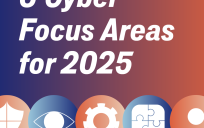 In 2018 it is more important than ever to run a secure website. HTTPS stands for Hypertext Transfer Protocol Secure and it is a method for encrypting your website data. It also demonstrates that your website is authentic. HTTPS uses the Secure Socket Layer (SSL) to provide data encryption and a safe tunnel between the visitor’s web browser and the website server.
In 2018 it is more important than ever to run a secure website. HTTPS stands for Hypertext Transfer Protocol Secure and it is a method for encrypting your website data. It also demonstrates that your website is authentic. HTTPS uses the Secure Socket Layer (SSL) to provide data encryption and a safe tunnel between the visitor’s web browser and the website server.
With so many hacks and data compromises making the news, you want visitors to trust your official site and ensure that interactions are secure. Web browsers such as Chrome have started to encourage websites to go https only by displaying a not secure message on non-secure websites.
If you think of your agency website as the digital front-door, you are not making a good first impression. Would you trust this website for information and services?
I encourage you to become the HTTPS champion in your organization. To ensure you are using HTTPS instead of HTTP, you need to install a security certificate on your web server. You can purchase a security certificate at around $200/year or you can use a free service such as Let’s Encrypt. Talk to your IT department, your website hosting vendors, and your cloud-hosted web application vendors and tell them you want to switch your website to HTTPS as soon as possible. You should also add HTTPS by default as a standard requirement for request for proposals and software contracts.
Together we can encrypt the web and make it a more secure experience for everyone!
Reference Links
You may also be interested in The Value of Cybersecurity Standards at all Levels of Government and What HTTPS Everywhere Means for Federal Agencies.
Leslie Labrecque is part of the GovLoop Featured Contributor program, where we feature articles by government voices from all across the country (and world!). See more Featured Contributor posts





Security is so important. Thanks for the reminder!
I’m surprised this isn’t a given knowing how commonplace https is on websites these days. Hopefully more people will champion this important aspect of online security.